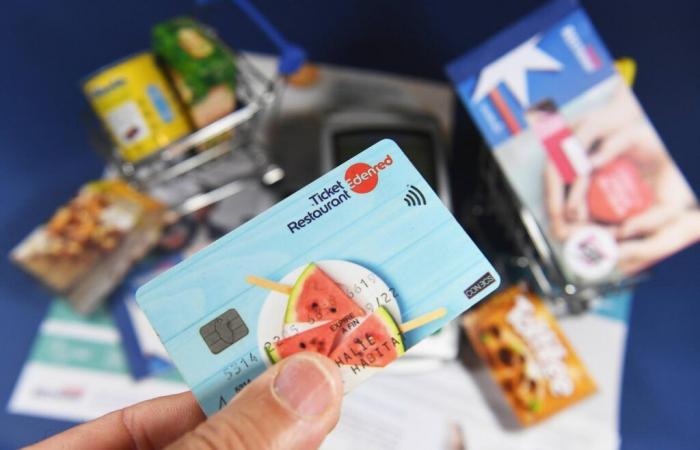There is no question of preventing the 5.4 million employees benefiting from meal vouchers from using them at supermarket checkouts to pay for a packet of pasta or a pat of butter. The law provides, in fact, that only ready-to-eat products can be purchased in supermarkets using this means of payment, co-financed by employers and employees and benefiting from 1.5 billion euros in exemptions. taxes and contributions.
But, against a backdrop of galloping inflation, Parliament voted for an exemption in August 2022, extending the use of meal vouchers in mass distribution to almost all foodstuffs. This exemption ends on December 31, 2024, the deputies adopted, on Wednesday November 20, a bill extending this exemption until December 31, 2026.
While being aware that this measure penalizes restaurateurs, elected officials from all sides supported the maintenance of this exemption in the name of defending purchasing power. The debate focused instead on the duration of the postponement. Should the measure be perpetuated as the New Popular Front wanted? Or push back the deadline by just one year, as recommended by Anne-Laure Blin (Maine-et-Loire, Les Républicains), rapporteur of the text?
Read also: Meal vouchers: why their conditions of use are debated
Read later
The Assembly preferred to opt for a two-year postponement, while waiting for the Senate to take up the subject. Objective: to give time to carry out a “in-depth reform” meal vouchers, as committed by the Secretary of State responsible for consumption, Laurence Garnier. “The work will begin in January 2025”she promised, ensuring that there would be no “no taboo subject”. And to evoke, in bulk, “dematerialization”, “double ceiling”strengthening flows towards donation platforms or creation of “eligible product baskets”.
Share of restaurateurs in decline
Since 2019, the public authorities have promised a « modernisation » of the French's favorite social benefit. This system, created in 1967 to allow employees without canteens to have lunch in restaurants, initially came up against the current trend marking a return to home-cooked meals. There is also the question of total dematerialization, that is to say the elimination of paper titles, which still represent 30% of payments.
Read also | Article reserved for our subscribers Account settlements in sight for issuers of meal vouchers
Read later
This market, which totals 9 billion euros in business volume, is arousing desire. In two years, the share of supermarkets has increased from 25% to 33%, to the great dismay of restaurateurs who at the same time see their share eroding to reach 40%. They complain of having lost 550 million euros in turnover in the process. Hence their request to let them benefit from a daily spending limit on meal vouchers higher than that allocated to large retailers. The current ceiling is 25 euros, regardless of where you spend it. The high level of commissions received by the four major issuers of restaurant vouchers – Edenred, Pluxee, Natixis-Swile and Up, which together capture 99% of the market – is also in the sights of bistro owners and other bakers.
You have 10.58% of this article left to read. The rest is reserved for subscribers.






